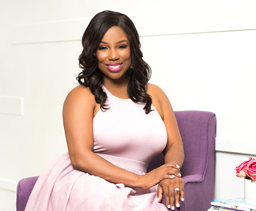I have never been a person who budgets effectively. My budgeting skills consisted of, “who needs to be paid and how much did I make.” Whatever was left. . .we’ll just call that play money. And honestly, it got me nowhere fast, regardless to the amount I was bringing in. Something had to change in order to get out of the paycheck-to-paycheck hamster wheel.
That’s when it hit me—everyone can budget. I was budgeting then, but in the most unsuccessful way possible. NO PLAN. I had not a single plan of action behind my paycheck and a mindset that hindered my financial growth.
Here’s what I did to fix my situation, and it may help you. I first had to understand my expenses.
1. I started with my total expenses, and that included everything I spent my income on. To be honest with you, that may be the most depressing and eye-opening revelation of your life. There are apps to help with this, but writing it down resonates a bit more. That’s exactly what I needed.
2. Then those expenses need to be broken down into categories such as:
a.Fixed expenses, those expenses that usually don’t change month to month.
b.Flexible expenses, these bills that fluctuate.
c.I put whatever was left in my disposable income bracket.
So far so good, right? Wrong! See, I didn’t have an emergency fund, probably because I grew up with a different understanding of what an emergency fund was. I only knew the rob-Peter-to-pay-Paul method. An Emergency fund has only one purpose, and that’s to cover your fixed and flexible expense for a certain period of time. Now, ask yourself how much time you need—shoot for three months. How much should be in the fund? That depends again on your fixed and flexible expenses. So, do the math and write that number down. It will then become a part of your new budget. Please treat this as a fixed expense until you reach your goal.
Since I mentioned goals, let’s touch on that subject a minute. Please set some goals for your wants and needs. Start with a savings goal. You have to pay yourself first—my wife taught me that. Give your goals a value, apply those values to your expense brackets. and build towards those goals. You’ll see the fruits of your labor sooner than later.
Changing your approach to money is the major obstacle, and it’s 95 percent mindset. Mastering these budgeting guidelines will help prepare you for any future obstacles and blessings that occur in your life.
-Quincy Humphrey


